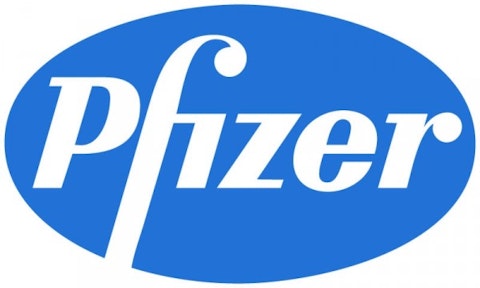The best thing about the stock market is that you can make money in either direction. Historically, stock indexes have tended to trend up over the long term. But when you look at individual stocks, you’ll find plenty that lose money over the long haul. According to hedge fund institution Blackstar Funds, even with dividends included, between 1983 and 2006, 64% of stocks underperformed the Russell 3000, a broad-scope market index.
A large influx of short-sellers shouldn’t be a condemning factor to any company, but it could be a red flag from traders that something may not be as cut-and-dried as it appears. Let’s look at three companies that have seen a rapid increase in the number of shares sold short and see whether traders are blowing smoke or if their worry has some merit.
| Company | Short Increase May 31 to June 14 | Short Shares as a % of Float |
|---|---|---|
| Pfizer Inc. (NYSE:PFE) | 155.7% | 3.1% |
| Thermo Fisher Scientific Inc. (NYSE:TMO) | 783.5% | 9.2% |
| Foot Locker, Inc. (NYSE:FL) | 138.6% | 2.8% |
Source: The Wall Street Journal.
Short-sellers attack like animals
The spinoff of Pfizer Inc. (NYSE:PFE)’s animal health division Zoetis Inc (NYSE:ZTS) has acted as both a positive and negative for the company as a whole. By spinning off Zoetis, Pfizer was able to make it easier for shareholders to understand how each company earns its keep. Conversely, though, Pfizer Inc. (NYSE:PFE)’s human branded-drug segment is facing quite the patent cliff compared to Zoetis, which has seen steady mid-single-digit growth thanks to a surge in households owning pets and treating them like members of the family. With shareholders voting to overwhelmingly tender their Pfizer shares for Zoetis shares, short-sellers must be thinking that Pfizer Inc. (NYSE:PFE)’s growth outlook without Zoetis’ bump is going to be more erratic.
To some extent I do agree with this increase in short interest, in the sense that shareholders should exercise caution with big pharmaceutical names. A high dividend yield and big brand name shouldn’t be enough to lure investors into an automatic investment. Pfizer Inc. (NYSE:PFE), for instance, lost the previous best-selling drug in the world, Lipitor, to patent expiration in late 2011 and stands to lose a few other key products to generic competition in the coming two years.
Then again, Pfizer has put out some very intriguing products lately, which could signify that its product pipeline is far from outdated. None stands out more than revolutionary new blood-thinning drug Eliquis, developed in partnership with Bristol Myers Squibb Co. (NYSE:BMY). Eliquis has blockbuster peak sales potential and essentially mopped the floor with warfarin in practically every aspect. Let’s not also forget about LDL-cholesterol-fighting drug Liptruzet, which combines generic Lipitor with Merck & Co., Inc. (NYSE:MRK)‘s cholesterol absorption inhibitor, Zetia. Individually, these two LDL-reducing agents worked well, but combined as Liptruzet, they reduced LDL cholesterol by 53% to 61%.
Caution is merited with Pfizer shares, but short-sellers’ expectations to the downside may be a bit in the clouds.
Analyzing the short-sellers
The overwhelming boost in the number of short-sellers stems from Thermo Fisher Scientific Inc. (NYSE:TMO) pricing the largest public stock offering all year earlier this month. The $2.2 billion offering comes on the heels of its agreement to purchase rival Life Technologies Corp. (NASDAQ:LIFE) for $13.6 billion. As with Pfizer, there are a lot of mixed emotions about the deal and the share offering.
On one hand, Thermo Fisher Scientific Inc. (NYSE:TMO) put off the dilutive effects of a share offering until after its deal with Life Technologies closes. By using forward-sale agreement, the banks underwriting the offering borrowed shares from other parties. When the deal closes, Thermo Fisher will issue new shares to the bank and take the dilutive hit that short-sellers are positioning for.
There’s also concern that prolonged government austerity measures could drag down funding at hospitals and universities, which are a big component of increased genetic-testing sales. Despite lower genome mapping costs for Life Technologies, a slowdown in Europe and in the U.S. could put a crimp in Thermo Fisher Scientific Inc. (NYSE:TMO)’s bottom line.
On the other hand, with baby boomers aging and genetic mapping costs falling, the prospect of higher testing volume is readily apparent. I wouldn’t be shocked to see the personalization of medical care pick up dramatically over the next decade on lowered expenses, which would be a big boost to Life Technologies and its buyer, Thermo Fisher Scientific Inc. (NYSE:TMO).
All told, I feel this merits a watch-and-wait approach.
No foundation underneath their shoes
Footwear retailing chain Foot Locker, Inc. (NYSE:FL) has seen a dramatic boost in short-sellers in recent weeks, and one can only speculate that it has to do with an expected slowdown by the world’s most recognizable footwear maker, NIKE, Inc. (NYSE:NKE). In Nike’s most recent earnings report, the company delivered EPS-topping results but also cautioned that it was unsure when growth in China would pick up, causing concern among investors.
However, if short-sellers are hoping for China’s growing pessimism to spread across to U.S. footwear sales, they have another thing coming. Foot Locker, Inc. (NYSE:FL) does have overseas exposure, but it’s to Europe, Australia, and South Korea, not China, and comparable-store sales in its first-quarter results were up 5.2%. Foot Locker has been executing its plan to remodel and relocate nonperforming stores with perfection and continues to carry a good blend of products in its locations that necessitates little brand-name discounting.
Furthermore, Foot Locker, Inc. (NYSE:FL) has been a big shareholder advocate in recent years. Its payout has more than doubled to $0.20 per quarter from just $0.09 in 2006, resulting in a yield topping 2% for shareholders. With close to $1 billion in net cash, strong comparable-store sales growth and a forward P/E of just 11, I don’t feel short-sellers have much ground to stand on.
Foolish roundup
This week it’s all about overanticipating short-term stock moving events. Spinoffs, share offerings, and a single earnings report from a major customer are certainly events that could cause temporary disruptions in the underlying fundamentals of a company, but they aren’t likely to affect your long-term investing thesis.
What’s your take on these three stocks? Do short-sellers have these stocks pegged, or are they blowing smoke? Share your thoughts in the comments section below.
The article Shorts Are Piling Into These Stocks. Should You Be Worried? originally appeared on Fool.com and is written by Sean Williams.
Fool contributor Sean Williams has no material interest in any companies mentioned in this article. You can follow him on CAPS under the screen name TMFUltraLong, track every pick he makes under the screen name TrackUltraLong, and check him out on Twitter, where he goes by the handle @TMFUltraLong.The Motley Fool owns shares of, and recommends, Nike. It also recommends Thermo Fisher Scientific.
Copyright © 1995 – 2013 The Motley Fool, LLC. All rights reserved. The Motley Fool has a disclosure policy.




